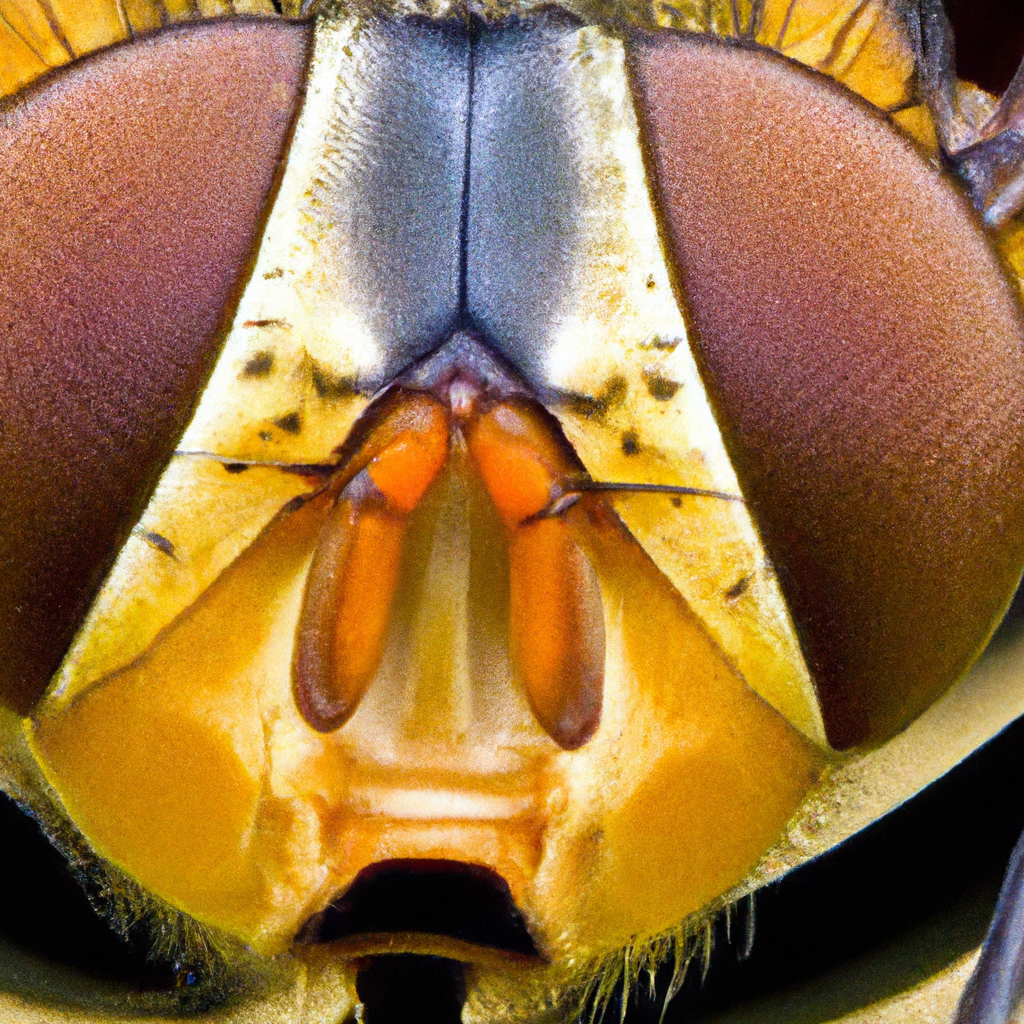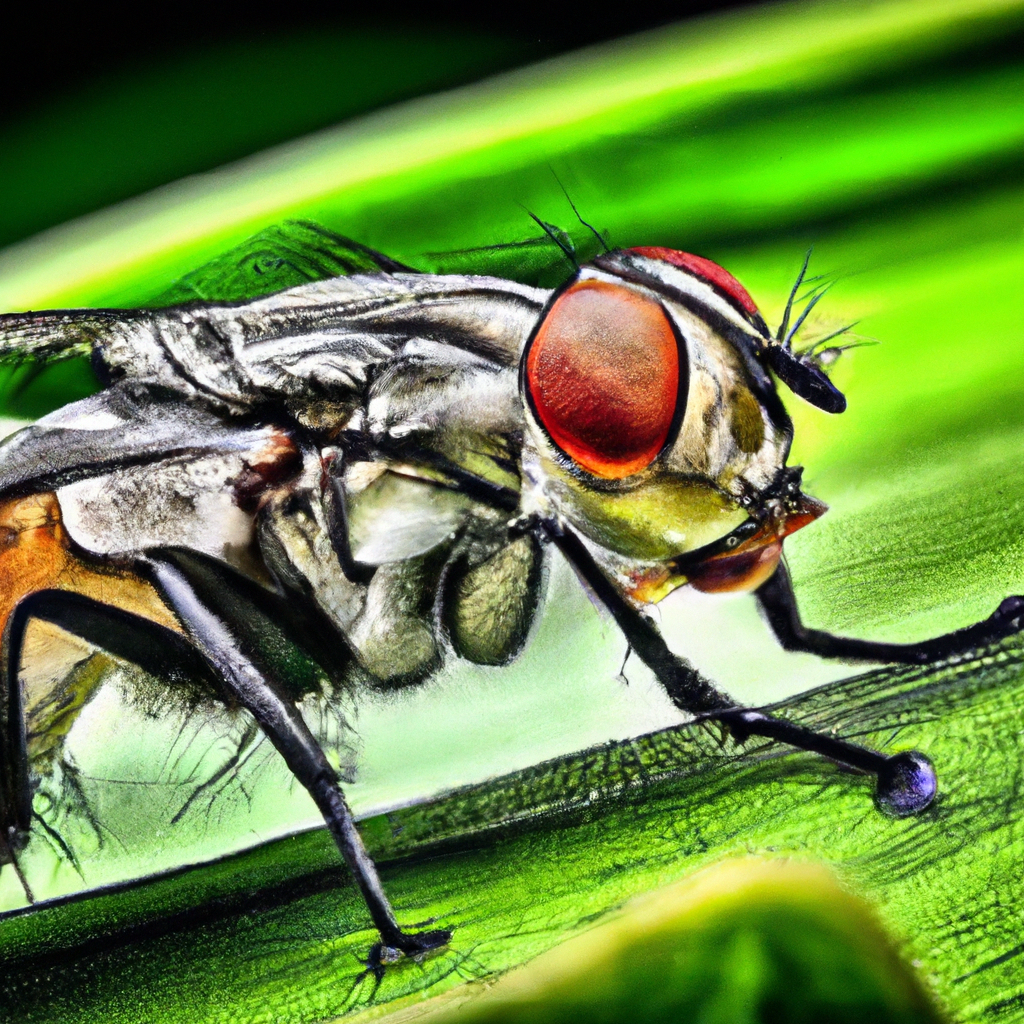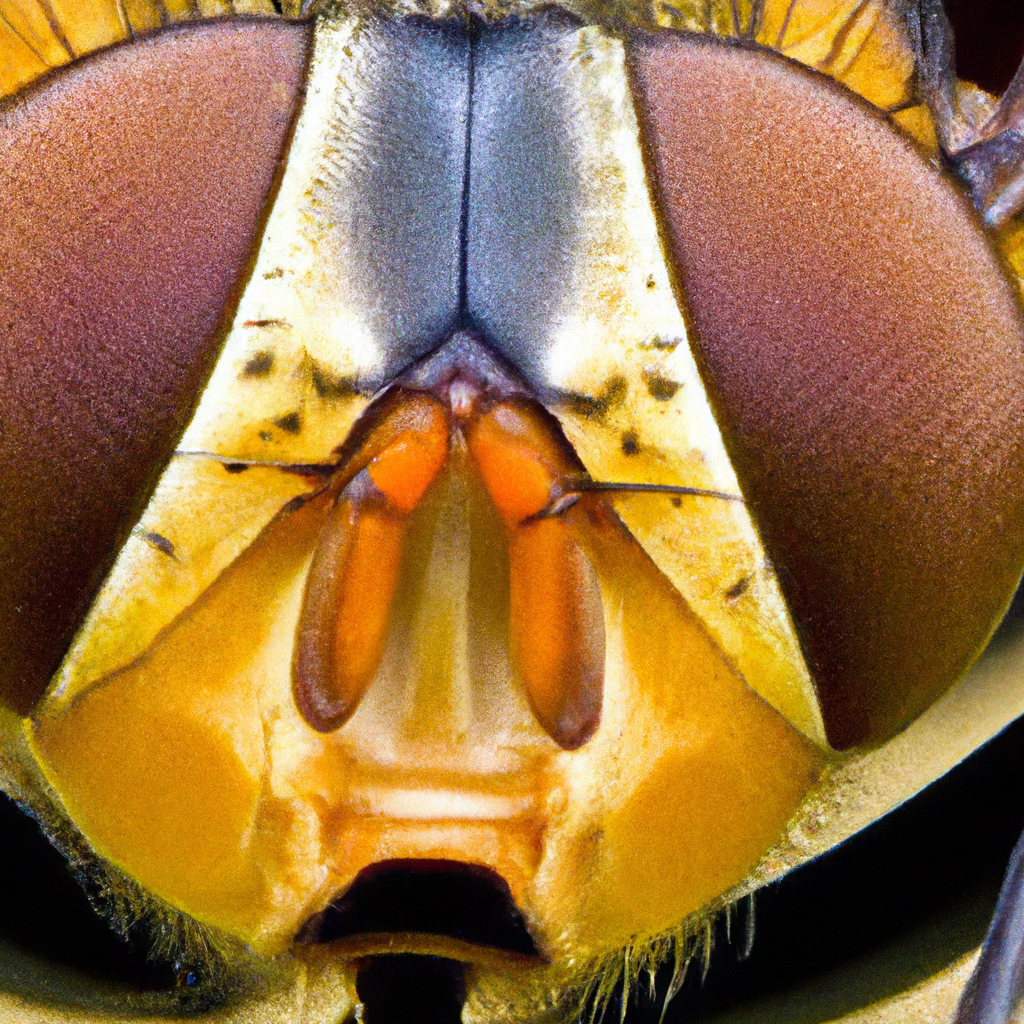Have you ever wondered why flies seem to buzz around incessantly? Whether you’re enjoying a picnic in the park or trying to relax at home, the constant presence of these buzzing insects can be quite annoying. In this article, we will explore the reasons behind why flies are attracted to certain environments and why they can’t seem to resist buzzing around. So, sit back, relax, and let’s unravel the mystery of the buzzing flies together!

Reasons for Fly Buzzing
Physical Characteristics of Flies
Flies, belonging to the order Diptera, possess several physical characteristics that contribute to their buzzing behavior. Firstly, their large compound eyes enable them to detect motion and distinguish surrounding objects. This acute vision allows flies to navigate their environment more effectively, but it also causes them to appear erratic and buzzy as they dart from place to place. Flies also have small, vibrating wings that beat at a rapid rate, generating the distinctive buzzing sound that we associate with these insects. The combination of their quick wing beats and agile flight patterns results in their characteristic buzzing behavior.
Feeding Behavior
One primary reason flies buzz around is their insatiable appetite. Flies are attracted to decaying organic matter and seek out various sources of food, such as rotting fruits, animal carcasses, and feces. Their buzzing behavior often indicates their arrival at a potential food source. Flies possess specialized mouthparts called proboscis, which they use to suck up liquid food. When feeding, flies regurgitate digestive enzymes onto their food source, dissolving it into a liquid form that they can ingest. This feeding behavior, accompanied by their buzzing flight, allows flies to efficiently locate and consume their meals.
Mating and Reproduction
Flies are highly reproductive insects, and their buzzing behavior often serves as a part of their mating ritual. Male flies produce buzzing sounds to attract female mates. This buzzing, combined with other courtship behaviors like wing movements and pheromone release, is a distinctive way for males to signal their presence and reproductive fitness to females. The buzzing serves as a form of advertisement, indicating the male’s willingness and ability to mate. This behavior allows flies to engage in successful reproduction and ensures the continuation of their species.
Defense Mechanisms
The buzzing of flies also serves as a defense mechanism against potential threats. Flies are often preyed upon by predators such as birds, spiders, and other insects. Their buzzing sound can startle and confuse predators, giving flies a chance to escape. Additionally, flies have evolved the ability to quickly change direction mid-flight, making them difficult to catch. The combination of their buzzing flight and evasive maneuvers helps flies evade predators and enhance their chances of survival.
Attracting Factors
Odor and Fragrances
One of the primary factors that attract flies is the presence of odors and fragrances. Flies have a highly developed sense of smell and are particularly attracted to strong-smelling substances. Decomposing organic matter, including rotting food, garbage, and animal droppings, emits distinct smells that flies find irresistible. This attraction to odors leads flies to buzz around areas where these smells are present. Ensuring proper waste management, regular garbage disposal, and clean surroundings can minimize the presence of attractive odors and help reduce fly infestations.
Temperature and Light
Flies are ectothermic creatures, meaning their body temperature is regulated by the environment. They are attracted to warm temperatures and sunny areas, as these conditions provide optimal conditions for their survival and reproduction. Furthermore, flies are highly sensitive to light and are particularly attracted to bright and illuminated spaces. The combination of warmth and light acts as a powerful attractant, causing flies to gather and buzz around these areas. To minimize fly attraction, it is important to keep indoor spaces cool and well-lit, ensuring proper ventilation and the use of window screens to prevent fly entry.
Moisture and Humidity
Flies thrive in moist and humid environments, making these conditions another factor that attracts them. They rely on water sources for hydration and reproduction, and areas with standing water or high humidity levels are highly appealing to flies. Common breeding grounds for flies include wet organic matter, such as wet soil, compost piles, and stagnant water pools. By minimizing areas of excess moisture and maintaining proper drainage systems, it is possible to discourage fly infestations and reduce buzzing activity.
Insights from Studies
Role of Vision
Extensive research has been conducted to understand the role of vision in the buzzing behavior of flies. Studies have revealed that flies possess remarkable visual capabilities, allowing them to detect and track fast-moving objects. Their compound eyes are composed of numerous individual lenses, which provide them with a wide field of view and exceptional motion detection abilities. This keen vision enables flies to engage in rapid flight and perceive their surroundings in detail, contributing to their characteristic buzzing flight patterns.
Auditory Communication
Flies utilize sound as a means of communication and for courtship rituals. Research has shown that the buzzing sound produced by flies is not only a result of their wing movements but also serves as a means of auditory communication between them. Flies can detect and interpret subtle variations in the frequency and pattern of buzzing sounds, allowing them to distinguish between different species, sexes, and even identify potential mates. This communication through sound plays a crucial role in fly behavior and reproductive success.
Chemical Sensitivity
Flies possess a heightened sense of chemical sensitivity, which influences their buzzing behavior. They are attracted to specific chemical cues, such as those emitted by decaying organic matter or the pheromones released by potential mates. Flies possess specialized chemosensory structures, like taste receptors on their legs and mouthparts, that enable them to detect and respond to these chemical signals. By understanding the chemical cues that attract flies, it becomes possible to develop effective control methods and repellents to mitigate their buzzing presence.
Environmental Impact
Disease Transmission
Flies have long been recognized as vectors for various diseases, making their buzzing presence concerning from a public health perspective. They can transmit pathogens and disease-causing microorganisms through their body and mouthparts, as they come into contact with contaminated surfaces and then land on food or human skin. Diseases like cholera, typhoid, dysentery, and salmonella can be transmitted by flies. Their buzzing behavior around food preparation areas and waste sites increases the risk of disease transmission, emphasizing the importance of fly control measures.
Ecological Balance
While flies may often be considered nuisance pests, they do play a role in maintaining ecological balance. Flies are key decomposers, breaking down organic matter and facilitating its recycling into the ecosystem. They aid in the breakdown of dead plants and animals, accelerating the process of decay. Furthermore, flies serve as a vital food source for other organisms, including insectivorous birds, bats, and spiders. The buzzing behavior of flies, although bothersome to humans, contributes to the natural cycle of decomposition and sustains the balance of ecosystems.
Agricultural Effects
Fly infestations can have significant impacts on agricultural productivity. Flies not only cause damage to crops by feeding on plant sap and fruits but also transmit diseases that affect livestock, resulting in reduced yield and economic losses. Additionally, some fly species, like the fruit fly, lay eggs inside fruits and vegetables, rendering them unfit for consumption. The buzzing presence of flies in agricultural settings can disrupt farming operations and necessitate the implementation of effective pest management strategies.

Controlling Fly Infestations
Sanitation and Hygiene
Maintaining proper sanitation and hygiene practices is crucial in controlling fly infestations. Flies are attracted to unclean and unsanitary conditions, making it essential to remove potential food sources and breeding sites. Regularly clean food preparation areas, dispose of garbage promptly, and store food in sealed containers. Additionally, proper waste management, including the use of tightly sealed rubbish bins and regular garbage collection, helps minimize fly attraction and breeding opportunities.
Physical Barriers
Implementing physical barriers is an effective method to prevent flies from entering indoor spaces. Installing screens on windows and doors prevents flies from accessing living areas while allowing ventilation. Fly screens with smaller mesh sizes can ensure that even tiny fly species cannot penetrate. Keeping doors closed and repairing any gaps or cracks in the building structure further reduces the chances of fly entry. By implementing physical barriers, buzzing flies can be kept at bay and prevent them from becoming a nuisance indoors.
Chemical Control Methods
In cases of severe fly infestations, chemical control methods can be employed. Insecticides specifically formulated for fly control can be applied to areas where flies are particularly active, such as garbage disposal areas or outdoor breeding sites. However, it is important to follow product instructions carefully and prioritize environmentally friendly options. When using insecticides indoors, ensure proper ventilation and minimize exposure to humans and pets. Integrated pest management approaches, combining chemical control with other control methods, provide effective long-term solutions for managing fly infestations.
Coping with Fly Annoyance
Screening and Netting
To cope with the annoyance of buzzing flies while enjoying outdoor activities, the use of screening and netting can be highly effective. Outdoor areas such as patios, decks, and picnic areas can be enclosed with fine mesh screens to prevent flies from entering. This provides a barrier between you and the buzzing flies, allowing you to enjoy your time outside with minimal disturbance. Using mosquito nets or bed netting while sleeping or resting can also provide relief from flies and other flying insects.
Fly Traps and Repellents
A variety of fly traps and repellents are available to help manage buzzing fly populations. Fly paper or sticky traps can be strategically placed to attract and trap flies. These traps utilize attractive scents and colors to lure flies into the adhesive surface. Electric fly zappers, which attract flies with a bright light, also provide effective control. Additionally, applying insect repellents that specifically target flies can help deter them from landing on your body and reduce annoyance. It is important to choose repellents that are safe and approved for use on humans.
Natural Remedies
For those seeking natural alternatives, several remedies can help deter buzzing flies. Certain plants, such as basil, lavender, and mint, possess fly-repellent properties and can be grown in outdoor areas to deter flies naturally. Essential oils extracted from these plants can also be diluted and applied as natural fly repellents. Hanging bags filled with cloves or placing slices of lemon studded with cloves can be effective in repelling flies indoors. Additionally, using fans in outdoor spaces can create airflow that makes it difficult for flies to hover and land.
To conclude, the buzzing behavior of flies serves various purposes, including navigation, feeding, mating, and defense. Flies are attracted to odors, warmth, light, and areas of moisture, which contribute to their buzzing presence. Research has provided valuable insights into the role of vision, auditory communication, and chemical sensitivity in fly behavior. While flies can be bothersome, they play ecological roles in decomposition and serve as a food source for other organisms. Controlling fly infestations requires implementing proper sanitation practices, physical barriers, and, if necessary, targeted chemical control methods. To cope with fly annoyance, screening, fly traps, repellents, and natural remedies can provide relief. Understanding the reasons behind fly buzzing and employing effective management strategies can help minimize their impact and create more comfortable living environments.




